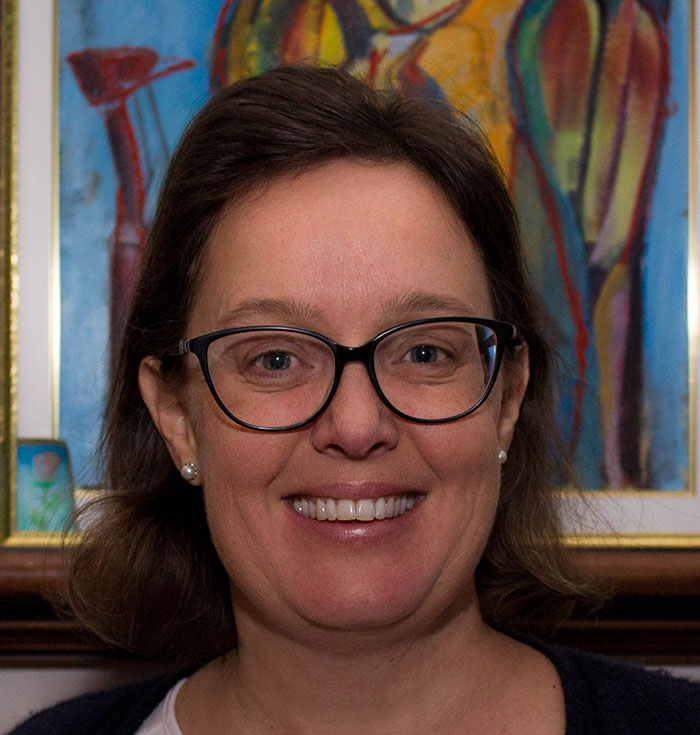Keynote speakers

Katalin Csizér
Department of English Applied Linguistics, Eötvös Loránd University (Hungary)
Foreign language learning motivation and assessment: An overview of theoretical and empirical results
It is a well-known fact that the Hungarian foreign language leaning context is highly exam centered and thus success is often measured by students passing various language exams as opposed to actual language use or long-term engagement (Öveges & Csizér, 2018). Still there is very little research on the interrelationships of L2 motivation and assessment. For example, the most recent handbook on L2 motivation (Lamb et al., 2020) failed to cover the motivational impact of language testing and assessment. In order to understand the current state-of-art, I will discuss three aspects of the field of L2 motivation in my talk. First I would like to summarize the most recent theories and their potential relevance to language testing and assessment. Next, possible motivational and demotivational aspects of language testing/assessment will be outlined by presenting both Hungarian and international research results. Third, I will very briefly touch upon some Hungarian data assessing the relationships among motivational and exam-related scales for secondary school learners. At the end, I will propose some future research directions to examine the potential motivational impact of language testing and assessment in the Hungarian context as well as outline some instructional implications and conclusions.

Samuel Greiff
Department of Behavioural and Cognitive Sciences, University of Luxembourg
How to Enhance Testing & Learning: Technology-Based Assessment in the 21st Century
Over the last two decades, educational assessments have undergone dramatic changes moving away from simple paper-pencil based assessments to integrated learning-assessment environments that might offer genuine learning experiences to students. This change in landscape has had strong implications for students, teachers, institutions, and educational systems. On the basis of simulated assessment environments, news about student rankings, under- and overperforming countries, and novel ideas on how to improve educational systems are prominently featured in the media. While the scientific quality of these headlines varies considerably, there are interesting scientific, political, and practical developments and challenges currently taking place in the field of educational assessment, mostly the integration of technology into standard assessment procedures. In this keynote, I will identify vibrant areas of development in educational assessment, discuss opportunities and challenges arising from the digital revolution, and talk about implications for educational policy and educational practice.

Katalin Csizér
Department of English Applied Linguistics, Eötvös Loránd University (Hungary)
Foreign language learning motivation and assessment: An overview of theoretical and empirical results
It is a well-known fact that the Hungarian foreign language leaning context is highly exam centered and thus success is often measured by students passing various language exams as opposed to actual language use or long-term engagement (Öveges & Csizér, 2018). Still there is very little research on the interrelationships of L2 motivation and assessment. For example, the most recent handbook on L2 motivation (Lamb et al., 2020) failed to cover the motivational impact of language testing and assessment. In order to understand the current state-of-art, I will discuss three aspects of the field of L2 motivation in my talk. First I would like to summarize the most recent theories and their potential relevance to language testing and assessment. Next, possible motivational and demotivational aspects of language testing/assessment will be outlined by presenting both Hungarian and international research results. Third, I will very briefly touch upon some Hungarian data assessing the relationships among motivational and exam-related scales for secondary school learners. At the end, I will propose some future research directions to examine the potential motivational impact of language testing and assessment in the Hungarian context as well as outline some instructional implications and conclusions.

Samuel Greiff
Department of Behavioural and Cognitive Sciences, University of Luxembourg
How to Enhance Testing & Learning: Technology-Based Assessment in the 21st Century
Over the last two decades, educational assessments have undergone dramatic changes moving away from simple paper-pencil based assessments to integrated learning-assessment environments that might offer genuine learning experiences to students. This change in landscape has had strong implications for students, teachers, institutions, and educational systems. On the basis of simulated assessment environments, news about student rankings, under- and overperforming countries, and novel ideas on how to improve educational systems are prominently featured in the media. While the scientific quality of these headlines varies considerably, there are interesting scientific, political, and practical developments and challenges currently taking place in the field of educational assessment, mostly the integration of technology into standard assessment procedures. In this keynote, I will identify vibrant areas of development in educational assessment, discuss opportunities and challenges arising from the digital revolution, and talk about implications for educational policy and educational practice.
Szeged

News
Cooperation with the Journal of Intelligence
In cooperation with the Journal of Intelligence, a special issue will be edited by Professor Gyöngyvér Molnár in the field of "Learning and Instruction". Authors of outstanding presentations at the Conference of Educational Assessment will be requested to contribute to this special issue. Details of the special issue are available here.
Deadline extended
The deadline for proposal submission has been extended till Monday, 24 January, 24:00 CET.


